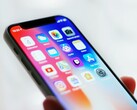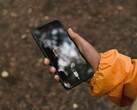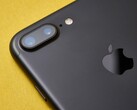1. Megapixels war: Camera vs. Smartphone battle
Megapixels, often highlighted in camera specs, are simply a measure of resolution that denotes the number of pixels a camera sensor contains. Common misconceptions suggest that higher megapixel counts directly correlate with superior image quality; however, this is not necessarily true.
Modern smartphones like the Samsung Galaxy S23 Ultra boast impressive specs, such as a 200-megapixel sensor, which might seem to guarantee high-quality photographs. The reality is that the quality of a photograph is more significantly influenced by the sensor size rather than just the number of megapixels. Larger sensors are capable of capturing more light, which enhances image detail and reduces noise, particularly in low-light conditions. This is why DSLRs and mirrorless cameras, which typically have larger sensors than smartphones or compact cameras, often produce better-quality images, regardless of having similar or sometimes lower megapixel counts.
Lens quality also plays a pivotal role in image creation. High-quality lenses are capable of capturing clearer and more color-accurate images. They can better focus light onto the sensor, reducing distortions and improving clarity, which is essential for achieving professional-grade photographs.
Image processing software is another crucial element. Today's cameras often incorporate sophisticated software algorithms that enhance image characteristics such as sharpness, color balance, and contrast. While these enhancements can significantly improve the appearance of photos, overly aggressive image processing might result in photos that look overly artificial or distorted.
2. Closing apps will save battery life
We might think that closing apps on our smartphones will help save battery life, but this isn't usually the case. Background apps are those that run in the background to maintain functionalities like email synchronization, notification delivery, and location services. Although it might seem logical to close these apps to save battery, this action often results in greater battery drain.
Modern smartphones are engineered to manage these apps efficiently through mechanisms that limit their background activity, thus conserving battery power. When users manually close an app, they force the system to restart it when next accessed, a process that consumes more battery than if the app had been allowed to remain in a low-energy state.
Moreover, the practice of closing apps doesn't always terminate their processes completely, potentially leading to continued battery drain and even decreased overall performance of the smartphone.
3. Apple slows down older devices to promote new model purchases
When a new iPhone is released, many users often observe that their existing models suddenly seem slower. In 2017, Apple confessed to deliberately slowing down the processors in older iPhones. The company claimed this measure was to preserve battery life and prevent unexpected shutdowns in aging devices, not to boost new sales - a point that remains contentious.
While Apple claimed their motivations were user-oriented, other smartphone manufacturers have consistently denied any intentional slowdown of older devices. This issue highlights a broader challenge with technology upgrades: newer operating systems and applications are optimized for the latest hardware. For example, an iPhone 8 running iOS 15, originally released with iOS 11, might struggle due to the advanced demands of the software which weren't anticipated in the older model's design.
In conclusion, the perceived slowdown of older iPhones around the time of new releases is more likely due to the increasing demands of new software and operating systems, rather than direct manufacturer intervention. As hardware ages and newer software versions are optimized for the latest models, older devices naturally face performance limitations.
4. Charging phones overnight destroys the battery
Many people worry that charging your phone overnight will damage the battery, but modern smartphones are designed to prevent this. These phones have lithium-ion batteries equipped with advanced systems that stop charging once the battery is full, avoiding any potential overcharging.
For instance, iPhones starting with iOS 13 include a feature called Optimized Battery Charging. This feature keeps the battery charge at 80% if the phone is plugged in for a long time, such as overnight. This prevents the battery from charging continuously and helps extend its lifespan. Furthermore, the latest iPhone models allow you to set a maximum charge limit directly in the settings. If you choose, the phone won’t charge beyond 80% and will only recharge if the battery level drops to 75%, thereby minimizing the risk of battery strain.
5. Refreshing windows will improve PC speed
It's a common myth that pressing the refresh button or F5 on a computer will make it run faster, but this isn't true. Refreshing your computer doesn't improve its performance.
The main job of the refresh button is to update what you see on your computer screen. For example, if you delete a file but still see its icon, pressing refresh will update the folder so the icon disappears. This shows the folder's current state.
When you press F5, the icons might flicker as the screen updates to match any recent changes. This is helpful for making sure your screen accurately shows what's in a folder or on your desktop.
It's important to note that regardless of how many times you press the refresh button, the effect remains the same: it simply updates the view of the directory in use. While it's true that refreshing can impose a minor load on the processor, as it requires the system to reload data from its cache, this impact is negligible and does not affect overall computer performance.










